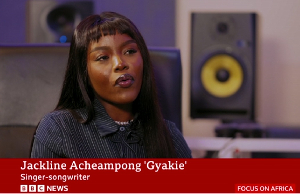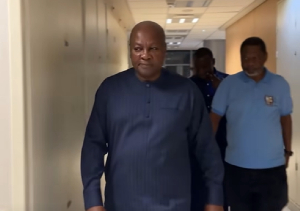The bosses of the existing five telecom operators in Ghana have expressed varying opinions about the entry of the sixth operator, Glo, into the market.
Whiles some say the Ghanaian market is not ready for a sixth operator, others are of the opinion that opportunities for growth still exist in the Ghanaian market for a sixth operator.
Glo has just launched its number reservation campaign that allows one million people to reserve special numbers on Glo’s 023 networks. But that is just one of many events planned to culminate in the launch of the actual commercial services possibly later this month when “a handsome number of people had registered their numbers on Glo.”
Long before now, industry players, observers and some policy makers did not make a secret of their opinion that Ghana is too small a market and so near saturation to accommodate six multinational telecom operators, and that, even five operators is one too many.
In spite of those opinions, government granted license to Glo some two years ago and the company has since invested more than $750million in the country without getting a pesewa back.
But as a result of that investment, Glo is the first operator to start operations at almost 100% coverage, with latest broadband technology, Next Generation Network, over 1,600 state-of-the-art Base Transceiver Stations (BTS), four ultra modern Switches with capacity for up to 10 million lines with congestion-free service, 18 Base Switching Centres (BSC), 800 3G Node Bs, an ultra-modern Call Centre and 25 GloWorld outlets, and its one fibre optic backbone, Glo One.
Glo has only now begun the process towards the actual launch of commercial services in Ghana, and some CEO’s of the existing telecom operators in Ghana said they respect Glo for the ‘gargantuan’ investment , but are not sure if “this difficult market” has much options for Glo.
At least two of the telecom CEOs, Philip Sowah of Airtel Ghana and Carlos Caceres of Tigo Ghana spoke with Adom News on a range of issues regarding the entry of a sixth operator, whiles the other three telecom CEO’s have been quoted in another publication from separate interviews they had with some unnamed international media about Glo.
Both Philip Sowah and Carlos Caceres disagreed with the opinion that the market is saturated and does not have many options for a sixth operator.
Carlos Caceres was of the opinion that the market always has opportunities for companies that offer competitive service, adding “in a dynamic industry like this one, every day, new business opportunities are appearing.”
Caceres said competition is always good to the extent that it benefits consumers, adding that there is still room to grow in the Ghanaian market, but the operators who offer the best value proposal to consumers would be the winners.
He however noted that even though Glo is taking off on a strong infrastructural backbone, it has to complement that by competitive tariffs, great customer service and by satisfying customer needs.
In terms of tariff, Tigo currently offers the lowest subscribed on-net call tariff of 3Gp, whiles majority of operators offer 8.4Gp per minute and some higher. There is also the ‘138’ promotional offer on Vodafone that could offer as low as 1Gp per minute on weekends.
Glo has promised to start on an aggressive note, but the question has been how aggressive Glo can get in terms of tariffs, competing with as low as 3Gp on-net on Tigo and Vodafone’s promotional 1Gp per minute.
Philip Sowah was of the view that there is still room for a sixth operator, but that operator would have to focus on data to remain competitive against the five multinationals and survive.
He said there is room for three times the current 21 million plus mobile subscription in Ghana to be added on because the industry is likely to focus on data from this year, and that would mean more sim cards would be inserted into more data devices beyond the mobile phone.
"This means one person can have up to four sim cards on one network inserted in a phone, a modem, a tablet and other devices that would be rolled out beginning this year, without that person doing multi-siming,"
He said the Ghanaian market is a high price elasticity market, but the sixth operator cannot compete on the back of prices of voice calls alone at this stage, but has opportunities in data.
The Ghana Chamber of Telecommunications has always maintained that the price war is not the way to go because existing telecom operators have already started experiencing dwindling revenue.
Mr. Sowah however admitted that Glo’s entry would change the focus of the industry and would also pose further challenges to the other operator’s in terms of returns on their investment.
“What this does is that it makes it more difficult to recoup the investment you are making into the market because then you are sharing the telecom revenue with more people than before,” he said.
But Mr. Sowah noted that Airtel is not perturbed by the entry of the sixth operator because Airtel believes it has the best value offerings on the market and it does not matter whether a new operator comes in or an existing operator rebrands, Airtel is sure of getting its fair share of the market.
“Definitely as a new operator comes in you would have to do an audit of all your products and services to ensure they are delivering the value they are intended for and we have done that and we are satisfied with our position in the market and we are sure of maintaining our forward movement in terms of market share no matter what,” he said.
Meanwhile the Ghana Business and Finance Magazine has quoted Vodafone Ghana Boss, Kyle Whitehill as saying he did not believe the Ghanaian telecom market is ready to welcome a sixth operator, adding that going forward there is likely to be consolidation at some point.
Another CEO agreed with Kyle and explained that it is likely some telecom operators will trade places in different markets for survival – for instance operator ‘A’ may trade its interest in Ghana to operator ‘B’, whiles the latter does same for the former in another country.
“I foresee a situation where there would be four operators, where three of them have about 20% market share each and MTN’s market share has reduced to 40%.”
That CEO admitted on grounds of anonymity that he sees Glo going after the subscribers of MTN to create some amount of balance in the market.
But MTN Ghana boss, Michael Ikpoki was also quoted as saying the impact of the sixth operator would not be substantial, adding that in the short-term the impact would lead to reduction in call and data tariffs, but that would be reversed in the long-term.
Even the former Managing Director of Expresso Ghana (the only CDMA operator in Ghana), Hisham Ayoub expressed an opinion about the sixth operator before he left office. He was quoted as saying “I believe a newcomer will have fewer options other than coming in on prices, and this will erode tariffs further as the incumbent will follow, forcing the least efficient out of the market.”
So far, judging by the subscriber level, Expresso has been the less efficient in the market and that explains why Hisham Ayoub was removed from Ghana in less than six months of being in office.
The question then remains whether Expresso would crumble under the Glo power as Hisham Ayoub predicted before he left Ghana.
But for all these telecom CEO’s, Glo Ghana Boss, George Andah has only one statement – the speed with which Ghanaians are reserving numbers on Glo is evidence that Ghanaians are ready for Glo even if competition is not.
Samuel Dowuona
Business News of Saturday, 21 January 2012
Source: Dowuona, Samuel
Ghana’s telecom bosses disagree on Glo
Entertainment











